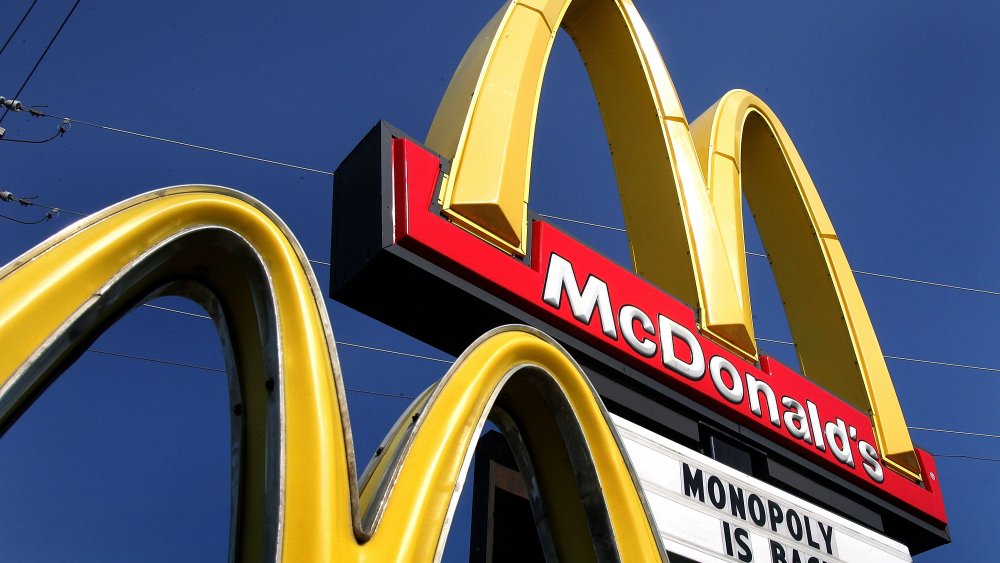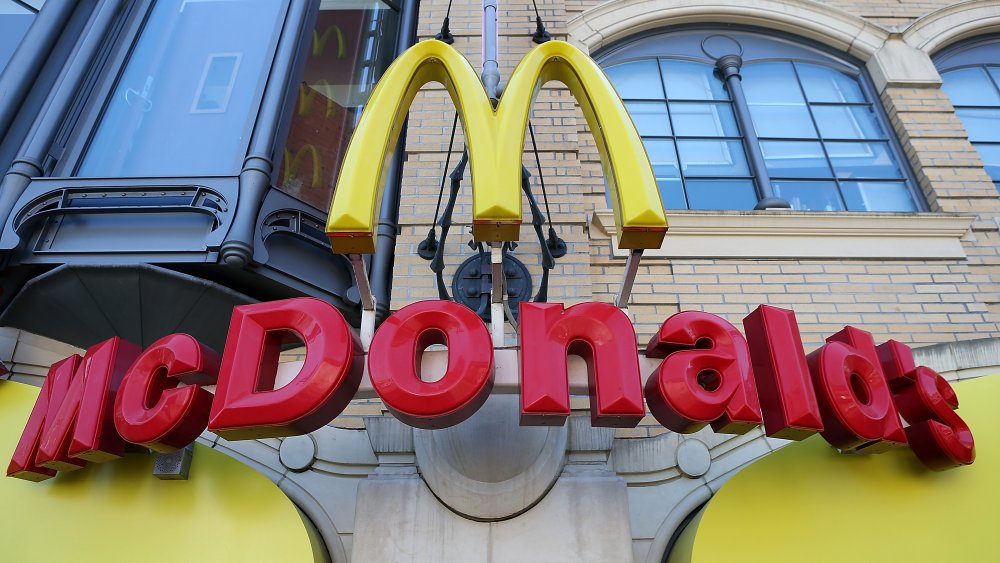The Surprising Way McDonald's Generates Most Of Its Income
It might seem painfully obvious how McDonald's makes the bulk of its money — it's gotta be food addiction, right? As observed in a 2011 Psychology Today article by Joshua Gowin, then a postdoctoral researcher at the National Institute on Alcohol Abuse and Alcoholism, "sugar is addictive" and "nearly everything on McDonald's menu contains some sugar, from the drinks to the ketchup to the hamburger buns and fries." This can create a psychological dependency akin to cocaine addiction, which presumably makes Ronald McDonald the Pablo Escobar of hamburgers and paints the Hamburglar as a desperate figure who only steals to feed a crippling addiction. Suddenly, "Big Mac attack" sounds like a euphemism for withdrawal.
But as tempting as it is to attribute all of Mickey D's profits to people snorting Happy Meals in alleyways and selling televisions for french fry money, the food actually isn't the biggest moneymaker for the McDonald's cartel. According to the Motley Fool, the company makes the bulk its money collecting rent, royalties, and other fees "from its army of franchisees."
Did somebody say McDollars?
The McDonald's franchise model originated with Ray Kroc, explains Investopedia. Krock launched his own franchise in 1955 before buying the company from the founding McDonald's brothers six years later. Rather than risk counting Chicken McNuggets before they've hatched, the company owns the land and brand that the franchisees use.
Franchisees pay a starting fee, and the rent is on 20-year terms with limits on how low the rate can go. This enables the company to expand rapidly with "almost no financial risk" since franchises are footing the bill, per the Motley Fool. The royalty fees are a veritable king's ransom that helps McDonald's maintain a profitability amounting to roughly 20 percent of sales. Investopedia says a whopping 82 percent of McDonald's revenue comes from franchises while company-owned establishments account for 16 percent of their overall haul. While this system is incredibly efficient, it does come with drawbacks. McDonald's essentially forfeits its say over who gets hired at the franchises.

